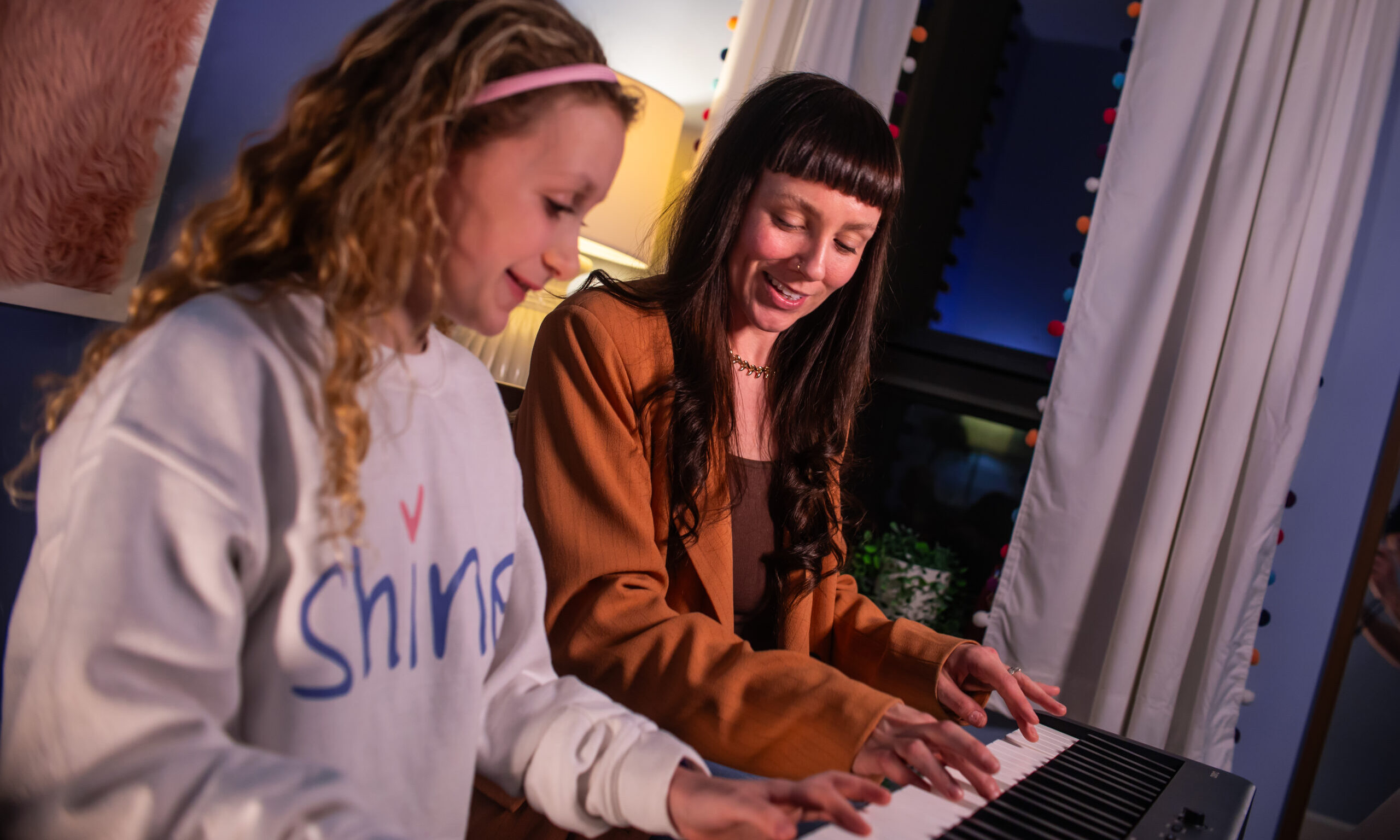St. John’s Parents Guide: Choosing the Right Instrument for Your Child

Choosing the right instrument for your child can be one of the most rewarding decisions a parent makes — helping to build confidence, patience, creative thinking, and trust within themselves. At Shine Music, we believe that finding the right instrument is the first step to a fun, lasting musical journey. This guide will help you understand how to choose the best instrument for your child based on their age, personality, and interests.
What’s the Best Age to Start Music Lessons?
Every student is amazingly different, but many are ready to start lessons as young as age 4 or 5. That said, the best time to start is when your kiddo shows genuine curiosity. Whether they’re singing around the house or tapping out rhythms on the table, these are signs to get them going! Additionally, enrolling your Little in our Toddler Music Group for ages 1–3 is a super fun way to introduce music into their (and your) weekly routine.
Factors to Consider When Choosing the Right Instrument for Your Child
Size & Age
When parents wonder what age to start their child in music lessons, size and developmental stage are key factors to consider. Younger children may struggle with larger or heavier instruments, which can make learning frustrating. Starting with a smaller, manageable instrument—like a ukulele or piano—lets beginners focus on basic skills, build confidence, and enjoy the learning process. Choosing the right-sized instrument from the start helps children develop proper technique and sets them up for long-term musical success.
Personality & Learning Style
Introverted children may feel more comfortable behind a drum set, while more outgoing kiddos may love singing or performing on piano. Some kids are hands-on learners; others prefer structure. Matching their instrument style and personal goals is what makes all the difference, and our instructors are passionate about incorporating this!
Budget & Accessibility
It’s important to consider the cost of the instrument and whether your student’s goals include practicing music at home. It isn’t uncommon for our teachers to start with “gravitational lessons,” where we observe which instrument your student naturally gravitates toward for the first few sessions. Once we’re all on the same page, we can offer advice on purchasing an instrument—or not!
Most Popular Instruments for Kids: Choosing the Right Instrument for Your Child
🎸 Guitar
A classic choice for kids who enjoy rock, folk, pop, or songwriting. Acoustic guitars are lightweight and ideal for beginners, while electric guitars can be great for kids interested in modern music styles. Keep in mind that children may need to move up to larger guitar sizes as they grow. Guitar lessons develop finger strength, coordination, and rhythm, and can also introduce basic music theory in a fun, hands-on way.
🎹 Piano
Piano is an excellent starting instrument for children of almost any age. It provides a clear visual layout of notes, making it easier to learn music theory, melody, and harmony. Because pianos are one-size-fits-all, students can start learning right away without needing to worry about changing instruments as they grow. While playing does require developing finger strength and coordination, beginners can start with simple exercises and gradually build these skills over time. Piano lessons also help develop hand-eye coordination, timing, and the ability to read music, giving a strong foundation for other instruments later on.
🥁 Drums
Drums are ideal for energetic kids who love rhythm and movement. Starting on a smaller kit or even practice pads allows younger students to build coordination, timing, and hand-eye coordination without strain. Drum lessons improve motor skills, focus, and listening abilities, and they’re a great outlet for energy. Rhythm exercises also help students build confidence and prepare them for performing in front of others.
🎤 Voice
The voice can be a child’s built-in instrument, and voice lessons help with pitch, tone, breath control, and overall confidence. Voice lessons can also teach performance skills, stage presence (on our built-in stage) and self-expression, making them beneficial even for beginners. Singing can be combined with other instruments, helping children understand melody and harmony in a practical, hands-on way.
It’s also important to note that we teach many people who are non-verbal, using music as a tool for communication, fun, and as a way to process emotion. To quote Hans Christian Anderson “where words fail, music speaks.”
Try a Trial Lesson at Shine Music in St. John’s
At Shine, we offer free trial lessons to help kids discover the instrument that suits them best. We call this process “instrument gravitation.” During the trial, students are invited to explore different lesson rooms and see what they naturally gravitate toward. It’s not uncommon for a child’s instrument of choice to change — and that’s encouraged! We follow their lead, getting to know them as individuals and building a music experience tailored just for them.
Ready to Get Started?
Choosing the right instrument is just the beginning. Book a free consultation or trial lesson today at Shine Music in St. John’s. Let’s help your child discover their passion and start a journey that inspires confidence, creativity, and joy.
Previous Story
No story to show!
Next Story
